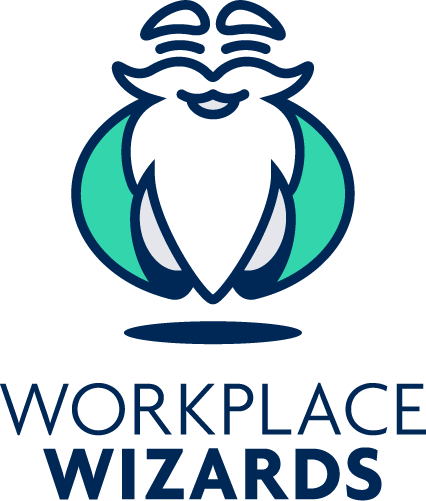You have an incident at your workplace. Rather than your HR team conducting the investigation, you engage a third-party law firm to conduct the workplace investigation and provide a report. This is better, you say, reports prepared by law firms for employers are covered by ‘legal privilege’ and the employer can’t be legally compelled to provide them in evidence, or to parties involved in the investigation. Well, think again. It seems the FWC is doing its best to wind back ‘privilege’ and provide such reports to complainants, trade unions or anybody else seeking their disclosure.
In a recent FWC decision – King [2018] FWC 6006 (26 September 2018) – Commissioner Nicholas Wilson ordered an employer to produce a workplace investigation report, rejecting arguments it was protected by ‘legal professional privilege’. In hearing a ‘stop-bullying application’ brought by an employee against her employer and three colleagues, Wilson C ordered the employer to produce the report from an external, independent investigation it had paid for, and had conducted by a law firm (Minter Ellison), into the employee’s complaints.
Background
The investigation found in April 2017 that each of the alleged perpetrators engaged in inappropriate conduct contrary to the employer’s code of conduct, and all were sent to “re-education camp”, sorry, “underwent counselling”. The employer objected to producing the report, claiming it was protected by legal professional privilege, but Wilson C said it was unlikely the dominant purpose of the investigation report was to obtain legal advice. At [15] and [16] he held:
[15] “Certainly there can be no characterisation at that time that the investigation report was commissioned for the purposes of legal services being provided to the Council in relation to a proceeding, given at that time none was contemplated.
[16] With the background referred to; the fact that the City of Darwin has not put forward with any particularity the legal advisory purpose held by commencement of the investigation report; together with the fact that no anti-bullying application was made to the Commission until well after the report had been completed leads to the conclusion that the dominant purpose of the investigation was not to obtain legal advice or legal services in relation to a proceeding. From what is before the Commission, it seems unlikely that this was even its primary or substantial purpose. What is evident from the material before the Commission is that the dominant purpose of the investigation was to inquire into Ms King’s complaints; to test if its Code had been breached and if so, to hold the transgressors to account.” (emphasis added)
The issues counting against the employer in this matter were:
- they hadn’t provided any evidence to the FWC (or employees at the commencement of the investigation) as to what legal advice it was seeking as part of the investigation, as well as
- the employee hadn’t made a stop-bullying application until well after the investigation had been completed (which Wilson C considered ‘torpedoed’ the employer’s claim the investigation came about in response to / connected to litigation).
Wilson C ordered the employer to produce an un-redacted version (and all its juicy little tidbits and observations, no doubt) of the report to the Complainant and all other ‘named persons’.
What does this mean for employers?
A lot. This decision follows on from similar reasoning (and a similar result) in an earlier 2017 decision involving DP World ([2015] FWC 7887.). In this decision Gostencnik DP of the FWC held that the investigation report from an IR consultant, engaged by a law firm to engage their client (the employer) was not prepared for the ‘dominant purpose’ of providing legal advice. Therefore, the decision went, it could not be considered exempt from being disclosed by the employer and compelled to be provided by the FWC on application for same.
This line of reasoning essentially unravels the long-held practice of internal HR teams engaging a third-party law firm to conduct the workplace investigation and provide a report. Employers are still free to do so (and churn through considerable ‘legal spend’ of tens of thousands of dollars), of course, but the ‘dominant purpose’ of doing so – to insulate the report from being compulsorily disclosed by wrapping it in legal privilege – appears to have evaporated. Well, at least as far as the FWC is concerned for those investigations conducted before litigation is ‘on foot’. Thus, potential options for employers in response to these decisions are:
- conduct the investigations internally (do you have a skilled and experienced HR manager, sorry, ‘business partner’, who can drop all their other work for 3-4 weeks to conduct these sensitive, complex exercises) and save the legal spend;
- still engage an independent, third-party investigator such as a law firm or IR consultant (accepting you may need to provide the report on request or upon a ‘notice to produce’ from the FWC);
- tactically workaround these decisions by delay investigating until the employee has taken their complaint externally, and commenced some form of process or litigation, whether it be a ‘stop-bullying’ application at FWC or discrimination claim at VCAT etc. This is largely counter-intuitive, as well, as one of the benefits of an early and effective incident investigation is to try and head off litigation ‘down the track’.
This could well be a game-changer in the independent investigation space. How will this decision affect your practices and your team going forward?
Responding to an incident at your workplace you wish to investigate can be a tricky, complex and time-consuming process for employers. Give our Workplace Relations Principal Consultant Mark Ritchie a call on 0458 6444 69, who can provide you with tips for how to ensure you conduct a fair, reasonable and legally defensible investigation process.



0 Comments Leave a comment
Comments are closed.